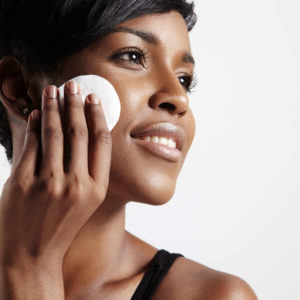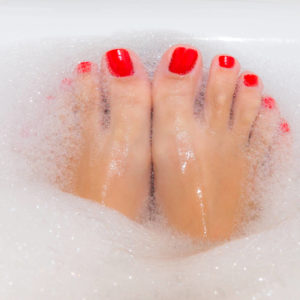We all know sleep is a basic human need. When the quality of our sleep declines, our physical and mental health also suffer. It is a vital part of our health and well being. So why do so many people struggle to get adequate good quality sleep? Let’s have a look at the importance of sleep and some ways to help you get more of it.
Some of it is habit
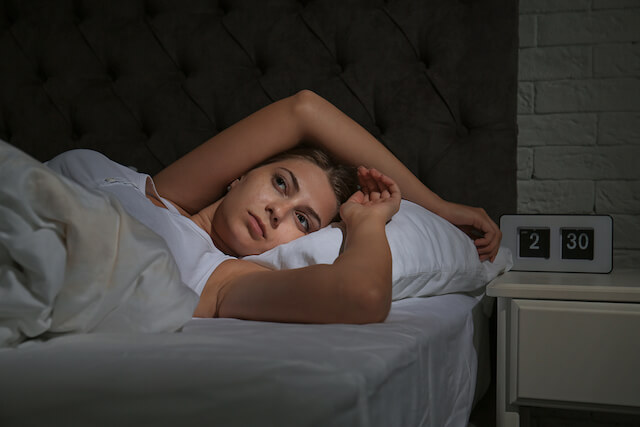
Let’s talk about the difference between sleep deprivation and sleep deficiency. Sleep deprivation is just when you do not get enough sleep. This usually means you are simply not prioritizing and setting aside enough time for adequate sleep. Establishing good evening habits to prepare your mind for sleep is very important and can go a long way to improving the quality of your rest time.
Sleep deficiency, on the other hand occurs when you do not get enough sleep, you sleep at inappropriate times, you have poor quality sleep, or you have some type of sleep disorder, such as snoring, sleep apnea, narcolepsy, or insomnia.
According to the Center for Disease Control (CDC) up to 35% of Americans don’t get enough sleep on a regular basis, and at least 20% may be attributed to a sleep disorder. These statistics are startlingly higher for teenagers and college students. And the repercussions are numerous.
Effects of Sleep Deficiency
Lack of sleep has a range of short-term and long-term effects on our health and mental and physical performance. Because your body needs adequate rest to perform literally every metabolic and physical activity, it’s no wonder that so many things start to fall apart with prolonged exhaustion. Some of the health effects of sleep deficiency include:
- Poor academic performance and memory
- Impaired ability to drive
- Depression and other mood disorders
- Increased risk of heart disease
- Hypertension (high blood pressure)
- Diabetes
- Cardiovascular disease and stroke
- Obesity
Improving Sleep
Okay, enough about the doom and gloom, what can we do to increase our sleep time and improve sleep quality? Prescription medicines for sleep come with a slew of side effects and can bring about a whole host of other problems. So let’s look at some natural ways to help you catch those valuable z’s.
Routine
Go to bed and wake up at a routine time each day. Parents of young children fully understand the importance of sleep routines. Nightly rituals of a bath and bedtime story help the child mentally prepare for sleep. The same is true for adults. Establishing a set bedtime routine sends a signal to your brain that says, “hey, get ready to go to sleep now.” A cup of calming chamomile tea, a relaxing soak in the tub, or a few minutes of quiet meditation or pleasure reading can help you wind down.

It’s also a good idea to avoid looking at your phone or other electronics for at least 30 minutes – 1 hour before retiring at night. The artificial light from devices actually suppresses your body’s natural release of the sleep hormone melatonin.
Scientists also suggest to avoid being in bed unless you are sleeping as another brain-programming tactic. Don’t lie in bed to watch TV or engage in other activities.
Melatonin
Melatonin is a natural hormone that helps regulate the body’s sleep/wake cycle. Exogenous melatonin has become one of the most frequently requested non-prescription sleep aids due to its regulatory role in the internal timing of biological rhythms, including promotion/regulation of sleep. Supplementing with melatonin is effective for improving chronic insomnia as well as occasional sleep issues.
Ditch the Caffeine and Alcohol
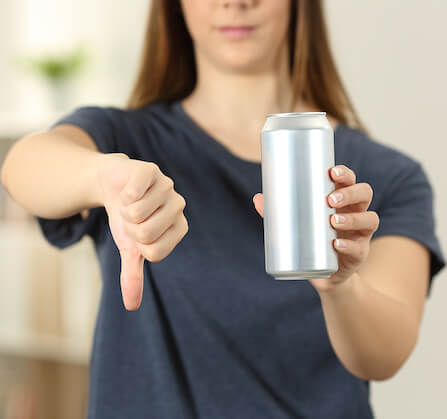
Most people know better than to consume caffeine too close to bedtime. But did you know that caffeine can affect sleep regardless of the time of day you consume it? Some studies show that caffeine has a direct affect on the ability to stay asleep and interferes with true REM quality sleep.
Although a night cap drink may seem like a good way to fall asleep, studies show that drinking alcohol can actually increase the symptoms of sleep apnea, snoring and disrupted sleep patterns and inhibit melatonin production, thereby decreasing sleep quality.
Evaluate Your Sleep Environment
Although it seems obvious, some people fail to realize that their sleep may be suffering because of an uncomfortable mattress, pillow, or sleeping conditions. Consider replacing an older mattress and purchasing a high-quality supportive pillow. The investment is worth it in the long run if it helps you to gain precious hours of rest each day. Check out this post for more information about how your mattress may be a culprit. My favorite pillow is this ergonomic one from Tempur-Pedic. It is designed specifically to help the muscles of your neck and shoulders to relax completely and help you fall asleep faster.

Studies show that cooling the body can promote better sleep as well. Many people prefer to lower the ambient temperature of their bedrooms at night to promote better rest.
Darkness is also paramount to good quality sleep. The release of melatonin is triggered by darkness, so if your bedroom is too brightly lit, you may experience trouble falling or staying asleep. If your bedroom windows allow too much light, consider some inexpensive room darkening shades. Another option is a sleep mask.
Essential Oils
Certain essential oils can help you wind down and relax before you drift off to sleep. Try a relaxing bath before bedtime or apply or diffuse essential oils such as lavender, vetiver, valerian, rue, or cedarwood.
Weighted Blankets
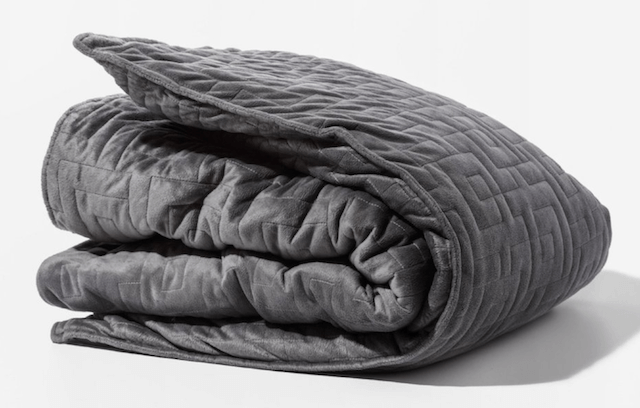
Sleeping under a weighted blanket is a somewhat new concept. It is similar to a baby being tightly swaddled to mimic the secure environment of being held. While scientific studies with weighted blankets are somewhat lacking, there are a few small studies and loads of users who swear by sleeping within the cocoon of a weighted blankets. For example, in one study of 31 adults with insomnia, 80% of test subjects reported longer sleep times and better quality sleep with a weighted blanket.
Regular Exercise During the Day
Studies show that people who engage in regular aerobic exercise have better sleep quality. This is partially because we expend more energy during exercise so our bodies are more tired and sleep more soundly. In addition, exercise helps combat stress and anxiety, which in turn improves sleep quality. Because exercise can be invigorating, be sure to exercise during the day and not right before bedtime.

Stress Less
The effects of chronic stress on the body are numerous. Sleep disturbance is perhaps one of the most detrimental effects of being stressed out. Finding healthy ways to decrease or eliminate stress in your life can improve your overall quality of life and health. For more information about the relationship between stress and sleep, as well as some practical solutions, check out this post.
Now, Go Get Some Sleep!
If you are among the 35% of sleep deprived Americans, it’s important to evaluate the reasons for your sleep difficulties. If you suspect a sleep disorder, consult your healthcare professional. Otherwise, you may just need to make some changes to your bedroom or consider implementing a new bedtime routine.
What are your favorite ways to prepare for bedtime and encourage a restful night?
Want to learn a great technique to relieve stress and improve sleep? Check out this post about Yoga Nidra.
Looking for more natural health and wellness education? Come







